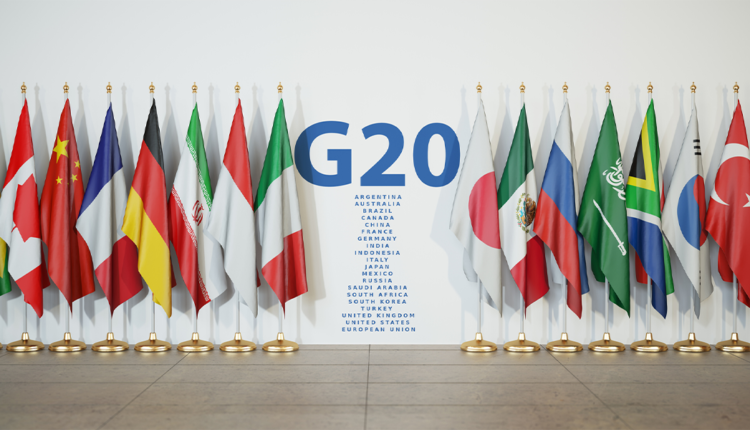By: Alfisyah Diansari )*
The G20 Summit is believed to be able to accelerate Indonesia’s transformation during the pandemic. Of course, this golden opportunity must be used optimally to improve sectors that were hit by the Covid-19 pandemic.
Indonesia highlights the importance of global policies to eliminate disparities, bridge gaps and increase sustainable economic productivity. The 2022 G20 Summit will also focus on a multi-faceted response to Covid-19 from a global perspective.
In the G20 Sherpa Track which discusses non-financial economic issues, economic transformation is one of the priority issues identified by the G20 Development Working Group (DWG). Other issues include inclusive and sustainable development, resilience and multilateralism. In order to achieve economic transformation, a strong knowledge and innovation ecosystem plays an important role by using a knowledge-based economic approach.
To bring knowledge to the global policy agenda, the Think 20 (T20) engagement group brings together globally recognized think tanks and research institutions to develop research-based policy recommendations that are formally submitted to G20 leaders for consideration.
Indonesia’s G20 presidency places Indonesia at the forefront of international focus and attention, particularly with regard to economic and social policies. In this context, Australia is an important partner for Indonesia in achieving its efforts to promote a global collective commitment to accelerate an inclusive global economic recovery. The Australian Ambassador to Indonesia, Penny Williams PSM, also expressed his country’s support for Indonesia’s G20 presidency.
Deputy for Economic Affairs at the Ministry of National Development Planning/Bappenas, Amalia Adininggar Widyasanti, said it was time for Indonesia to build a better place, not to be complacent with economic recovery, but to encourage economic growth. We must redesign Indonesia’s post-Covid19 economic transformation, not only to return to the pre-crisis period, but to be better than before the crisis.
This economic transformation is an important point for us to achieve the vision of Indonesia Gold 2045. Improving the quality of education, research, innovation, knowledge and evidence-based policies is important to increase competitiveness.
The integration of key policy issues such as economic transformation and social policy is important to produce sustainable and inclusive economic policies.
Amalia also explained how DWG’s priority issues, particularly economic transformation, support the achievement of the G20 agenda. Among them by implementing six major strategies for Indonesia’s economic transformation, which consist of competitive human resources, economic productivity, green economy, digital transformation, integration of the domestic economy and relocation of the capital city.
Furthermore, the Deputy for International Economic Cooperation at the Coordinating Ministry for the Economy. Edi Prio Pambudi, who is also the Co-Sherpa of the G20, explained that the G20 Indonesia Presidency will integrate input from the working group and engagement groups to ensure the absorption of G20 policies related to economic transformation and social policies.
Meanwhile, Yose Rizal Damuri as Executive Director of CSIS and Co-Chair T20, highlighted the biggest challenge, namely finding a common ground to move to get mechanisms and systems at the global level that can support the resolution of existing issues.
In addition, Yose hopes that the G20 will not only serve as a communique or just a commitment, but also need to be encouraged for the formation and mobilization of action in the recovery of the world economy.
On a different occasion, Indonesian President Joko Widodo said that it was not the time for countries to highlight their rivalries or create new tensions that disrupted the world’s recovery. The President believes that no single country can rise up alone. According to him, the revival of one area will also awaken other areas. On the other hand, the collapse of one area will also collapse other areas.
In addition, Jokowi emphasized that the G20 countries also have a duty to carry out several transformations, including accelerating the transition process to a new economy, accelerating equitable and affordable digital transformation and supporting the rise of micro, small and medium enterprises (MSMEs). He also hopes that the G20 meeting can produce concrete steps that can be implemented immediately.
Of course, Indonesia needs transformation for improvement during the Covid-19 pandemic. The G20 Summit should be a momentum for Indonesia in particular to formulate concrete steps in accelerating transformation during the Pandemic.
)* The author is a contributor to the Press Circle and Cikini Students
